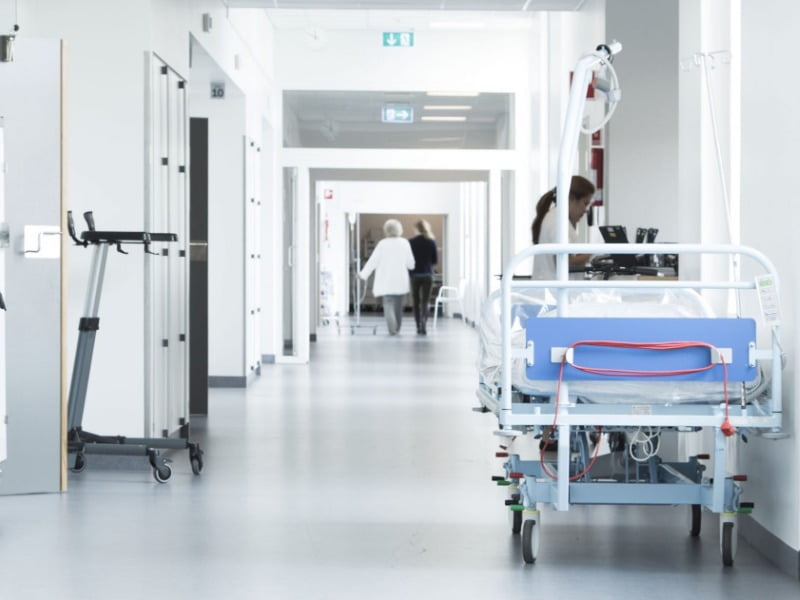At a campus on the outskirts of London, about 500 trainee nurses each year are being taught to use the cutting edge technology that industry thinks can put the UK’s public health system on a more sustainable footing.
Internet of Things, augmented reality and artificial intelligence are now in the hands of the students, who since Brexit, are being allowed to complete more of their practical training in simulated environments.
Technology like sensors, machine learning and computer vision are being touted as a way of improving diagnosis, care and patient monitoring at a time when the UK’s National Health Service is under “unbearable strain”.

Vendors and systems integrators like Verizon and Hitachi Vantara are pushing health facilities to start trialing the technology now so it is in place for the next wave of nurses and other health professionals.
The two companies have partnered with the London South Bank University (LSBU) to get the technology into its nursing training program, which splits students time evenly between academic study and clinical practice.
LSBU Professor Sandra Dudley-McEvoy said the access to cutting edge technologies that the global companies offer is changing the learning dynamics and graduates’ skills.
“From an engineering and health perspective, we’re looking at … they’re not just being clinically trained nurses, we’ve actually got data scientists sitting there,” she told InnovationAus during a visit to the facility.
“You’ve got the computer science, the AI side, and the engineering as well as the healthcare.”
According to Verizon managing partner Fred Walker, the project represents a genuine partnership in which Industry, academia and community health stakeholders have been clear on what outcomes they want.
“We’ve all agreed to come in here and talk to students about what’s happening in the real world, about how what they are learning impacts in the real world… We also need the technology startups building the next generation of tools here to test it — the things that we will see. Because that adds to our value that we can take out to our customers,” Mr Walker said.
“From an LSBU viewpoint, it’s about to we train the next generation of nurses.”
The big tech companies like Verizon insist a new data driven approach to health care can help stave off the growing pressure to public health systems while meeting users changing expectations.
But on the technology side, these are fundamental changes.
“We’re moving into a heavy IoT sensor driven environment, with information technology and operational technology coming together in certain areas,” he told InnovationAus.
The introduction of devices – tens of thousands of them in advanced facilities – adds a new dimension to the traditional approach of connecting users to applications, he said.
“I’m connecting devices to devices, devices to people, and, more importantly, devices to data. I need to run that data to give me real time information. Which means I now have to introduce AI and machine learning into those environments, because that amount of data can’t be processed by an individual.”
Done well it can provide a facility with a real time map of patients, health professionals, their skills and the equipment they rely on, while also revealing the demand coming in, Mr Walker said.
“I can match that demand with capacity and say, ‘don’t bring that patient to me because I don’t have the specialty to deal with that’.”
With better technology and connectivity a patient can be matched to the facility they require immediately and taken directly there, reducing ambulance trips and pressure on certain emergency wards, Mr Walker said.
Ahead of a major procurement launch for the national NHS patient data store last week the UK’s National Data Guardian, Dr Nicola Byrne, said the patient information must be protected as a “national treasure” but that it should not be left unused.
“The value of our data will only be realised if it can be organised in such a way that the NHS is able to use it well to improve treatments, services and ultimately our health and care,” Dr Byrne said.
“Sealing this precious asset in a vault where it cannot be used would render it worthless. However, making the data available in ways that damage patients’ trust would be counterproductive.”
The author travelled to the LSBU facility as a guest of Verizon.
Do you know more? Contact James Riley via Email.

